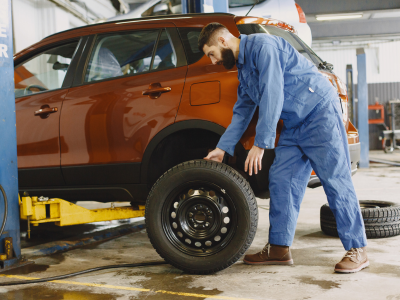Owning a car comes with the responsibility of maintaining it to ensure safety, longevity and optimal performance. Over time, vehicles can develop common repair issues that may lead to costly repairs if not addressed in time. Understanding these problems and taking preventive measures can help you save money and avoid unexpected breakdowns. Here are some of the most common car repair issues and how you can prevent them.
1. Engine Overheating
One of the most frequent car problems is engine overheating, which can result in severe engine damage if ignored. Overheating is typically caused by a malfunctioning cooling system, low coolant levels or a failing radiator.
Prevention:
- Regularly check coolant levels and top up as needed.
- Inspect the radiator and hoses for leaks.
- Ensure the thermostat and water pump are functioning correctly.
- Schedule routine maintenance to prevent overheating-related issues.
2. Battery Failure
A dead or weak battery can leave you stranded at the most inconvenient times. Battery failure often occurs due to prolonged inactivity, extreme weather conditions or corroded terminals.
Prevention:
- Test your battery voltage regularly.
- Keep battery terminals clean and free of corrosion.
- Avoid leaving lights or electronics on when the engine is off.
- Replace the battery every 3-5 years or as needed.
3. Brake System Issues
Brakes are critical for your safety and any malfunction can be dangerous. Common brake issues include worn-out brake pads, leaking brake fluid and damaged rotors.
Prevention:
- Check brake fluid levels regularly.
- Listen for squeaking or grinding noises, which indicate worn brake pads.
- Get professional brake inspections at least once a year.
- Replace brake pads and rotors when necessary.
4. Transmission Problems
A malfunctioning transmission can lead to rough gear shifts, delays in acceleration and expensive repairs. Transmission issues arise due to low fluid levels, overheating or internal wear and tear.
Prevention:
- Regularly check and change the transmission fluid.
- Avoid excessive towing or heavy loads that strain the transmission.
- Schedule routine transmission inspections.
- Address minor transmission issues before they escalate.
5. Tire Wear and Blowouts
Tires are crucial for safety and fuel efficiency. Uneven wear, low tread depth and improper inflation can lead to dangerous blowouts.
Prevention:
- Check tire pressure monthly and inflate to recommended levels.
- Rotate your tires every 5,000 to 8,000 miles.
- Inspect tires for cuts, punctures or uneven wear.
- Replace tires when the tread depth becomes too low.
6. Fuel System Issues
A clogged fuel filter or failing fuel pump can lead to poor fuel efficiency, engine misfires or stalling.
Prevention:
- Use high-quality fuel to prevent contamination.
- Change the fuel filter as per manufacturer recommendations.
- Keep the fuel tank above a quarter full to avoid pump damage.
- Schedule regular fuel system inspections.
7. Electrical Problems
Modern vehicles rely heavily on electrical components, making them prone to issues like faulty alternators, malfunctioning sensors or wiring problems.
Prevention:
- Have your alternator and electrical system checked during routine servicing.
- Avoid overloading your vehicle’s electrical system with too many devices.
- Replace faulty fuses and bulbs as needed.
- Ensure all electrical connections are secure.
Conclusion
Preventing common car repair issues is possible with regular maintenance and proactive inspections. By following these tips, you can keep your vehicle running efficiently, improve its lifespan and avoid costly breakdowns. If you need expert car maintenance and repair services, Autofixers is here to help. Contact us today at 7906252568 for reliable and professional car care!

